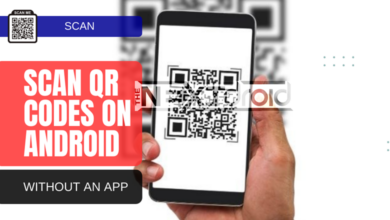
The widely used messaging service WhatsApp is an essential part of the way we communicate every day. With more than 2 billion users, it has an impact on many different cultures and continents. Even though WhatsApp’s user interface seems straightforward, it is brimming with sophisticated functions. One such trait is the purportedly simple check-mark system that serves as the focal point of our WhatsApp communication. WhatsApp has played a significant role in changing how people communicate online. The easy but mysterious tick mark system, however, is a feature that frequently puzzles many users. Many people specifically want to know “what does single tick mark on WhatsApp mean?”
A single gray check mark on WhatsApp signifies that your message has been successfully sent from your device. This system is automatic; once you hit the send button, your message goes into the vast digital expanse, and a single gray check mark appears under the message bubble. This is a sign of your message’s journey commencement but does not ensure it has reached its intended destination.
On WhatsApp, just a single grey tick mark indicates that your message has been sent successfully from your device. When you press the send button, this system automatically sends your message into the huge online expanse, consequently just one grey check mark appears beneath the message bubble. This indicates that your message has started travelling, but it does not mean it has arrived at its intended location.
Table of Contents
But why does a WhatsApp single tick sometimes remain for a long time?
Many find this scenario to be confusing. The message has been sent, but it appears to be stuck in transit at all times. This frequently means a problem with connectivity or phone status for the recipient. The recipient may not have WhatsApp open on their phone, be in an area with poor network coverage, or have their phone turned off. In these situations, the message has a prolonged “sent but not delivered” status.
Does one check mark mean you’re blocked on WhatsApp?
Associating a single tick mark with being blocked by the receiver is a widespread misconception. That is not true. On WhatsApp, being blocked typically prevents you from viewing the recipient’s profile picture, recent updates, or last seen status. A single tick mark will always appear in your messages to blocked contacts, but this does not imply that you have been blocked in all cases.
The curious case of the WhatsApp single tick but actually recipient read
A message marked with a single check may, on rare occasions, appear to have been read or otherwise interacted with. These are frequently anomalies or related to read receipts being disabled by the recipient, which could result in a message being read but not being marked as such on the sender’s end.
How about a single tick on WhatsApp but the recipient is online?
This might even make you frustrated and perplexed. You might be thinking, “If the recipient is online, why hasn’t my message been delivered?” The recipient may be online on a different device where your chat isn’t open or their app may not have synchronised with the server yet, among other possibilities.
Does one tick on WhatsApp mean the phone is off?
It’s a typical query. Even though one check mark that is left on for a long time may in fact mean that the recipient’s phone is off or not connected to the internet, it is not a reliable sign. This situation may also be impacted by additional factors like network problems or application errors.
In conclusion, WhatsApp’s check-mark system is a useful tool for monitoring the progress of message delivery. It’s essential not to draw conclusions solely from these marks, though, as a variety of factors may affect how the message is delivered.
FAQs
1. What does a single tick mean on WhatsApp?
On WhatsApp, sending a message from your device is indicated by a single tick.
2. If my WhatsApp message shows a single tick for a long time, does it mean I’ve been blocked?
No, not always. Your message has been sent, but it has not been delivered, according to a single check mark. There could be a number of causes for this, such as network problems, the recipient’s phone being off, or the recipient not opening WhatsApp recently.
3. What does it mean when there’s a single tick on WhatsApp, but the recipient appears online?
Your chat may not be open for the recipient because they are using WhatsApp on a different device or because the app hasn’t synchronised with the server yet.
4. Can a message be read even if there’s only one tick on WhatsApp?
A single check mark typically indicates that your message hasn’t yet been delivered. A message may be read, but on the receiving end still appear as a single tick if the recipient has disabled read receipts.
5. Does one tick on WhatsApp mean the phone is off?
Although it’s not a sure sign, a single tick that lasts for a long time might suggest that the recipient’s phone is off or not connected to the internet. This situation may also be caused by additional elements like network problems or application errors.
Conclusion
The WhatsApp single tick system is one of its most intriguing features. It can be quite the adventure navigating the world of digital communication. Understanding the subtleties of the single check mark helps us better comprehend this global messaging platform and makes using digital communication more enjoyable. The single tick serves as a subtly effective reminder of how our online interactions influence and shape our interpersonal relationships.











